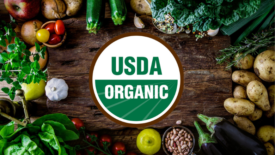Regulatory
With another cantaloupe outbreak occurring in 2023, change needs to happen, or there will likely be another outbreak in 2024
Read More
Cultivating Cannabis Regulations: Ensuring Food Safety in an Evolving Industry
With the proliferation of cannabis legislation in many U.S. states, there is a need to address food safety oversight through a federal regulatory framework
December 12, 2023
Never miss the latest news and trends driving the food safety industry
eNewsletter | Website | eMagazine
JOIN TODAY!Copyright ©2024. All Rights Reserved BNP Media.
Design, CMS, Hosting & Web Development :: ePublishing










